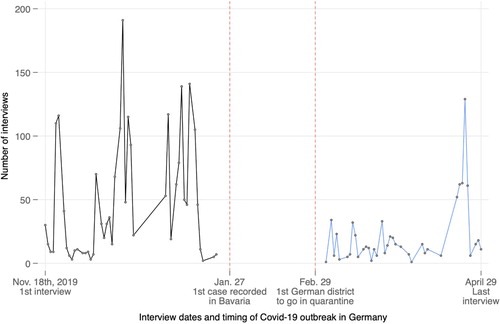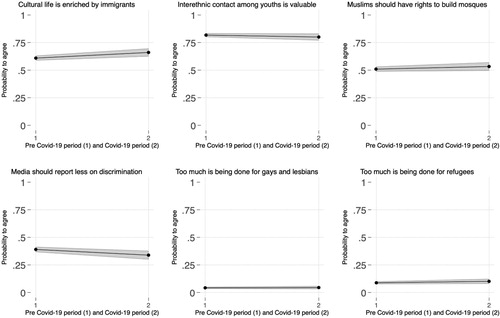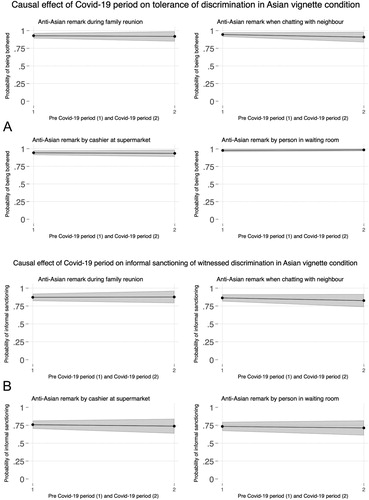Figures & data
Figure 1. Illustration of control (left, interview completed earlier than January 27th, 2020) and treatment (right, interview completed later than February 29th, 2020) groups around the start of the pandemic in Germany.

Figure 2. Estimated causal effect of Covid-19 period on diversity attitudes (grey areas are 95 per cent confidence intervals).
Notes: shows change in predicted probabilities for response to questions on diversity among respondents who answered the survey in the control (pre-Covid 19) and the treatment (during Covid-19) groups. Underlying models include controls for age, gender, professional status, migration background, educational attainment, far-right voting, and city of residence – all held at mean/representative values.

Figure 3. Estimated causal effect of Covid-19 period on antidiscrimination norms in vignette questions involving discrimination events against Asian-origin populations.
Notes: shows change in predicted probabilities for response to vignette questions on reaction (Panel A) and favoured behavioural response (Panel B) to discrimination event against Asian-origin populations in the control (pre-Covid 19) and the treatment (during Covid-19) groups. Underlying models include controls for age, gender, professional status, migration background, educational attainment, and far-right voting – all held at mean/representative values.

Table A1. Covariate balance between treatment and control groups.
